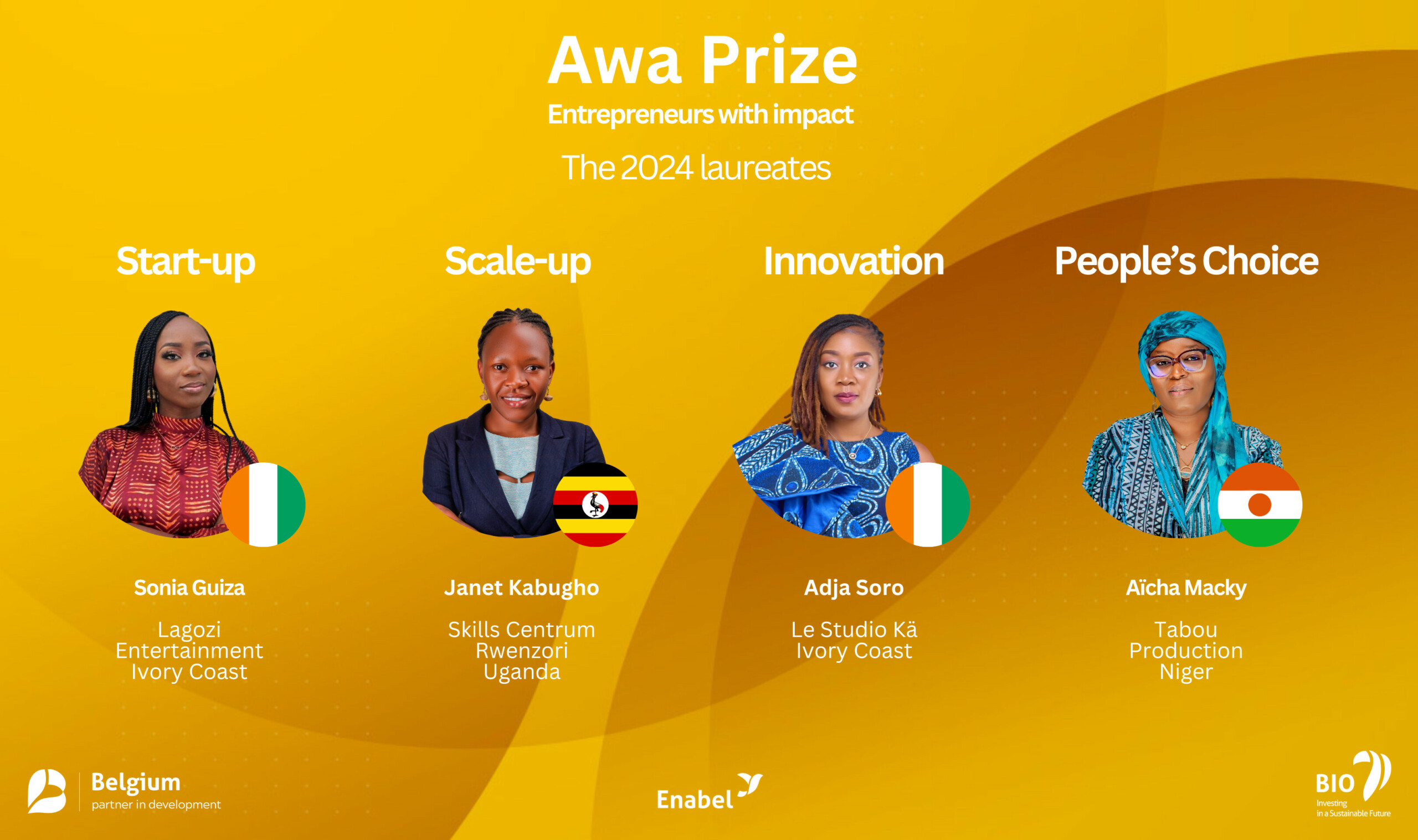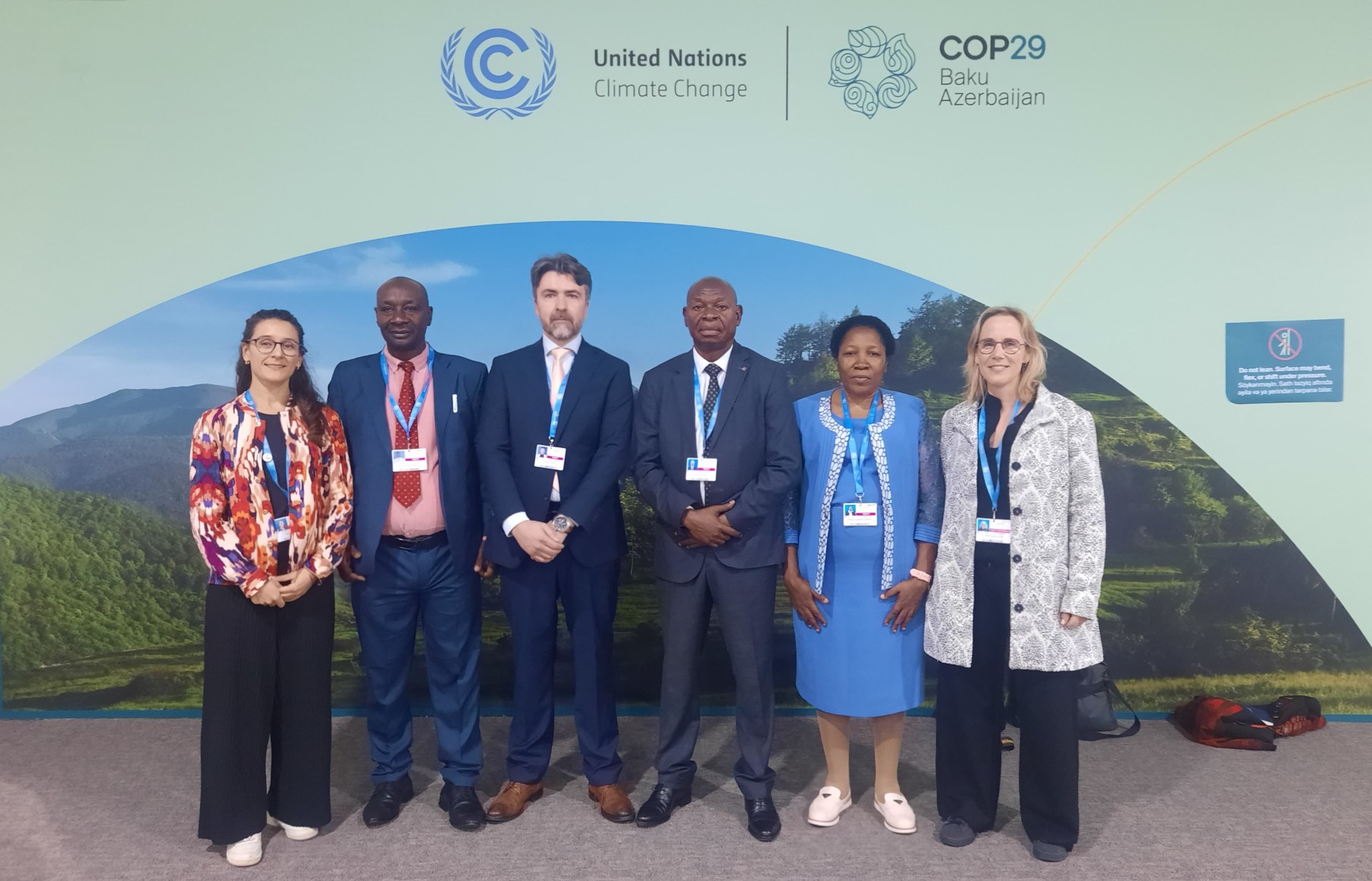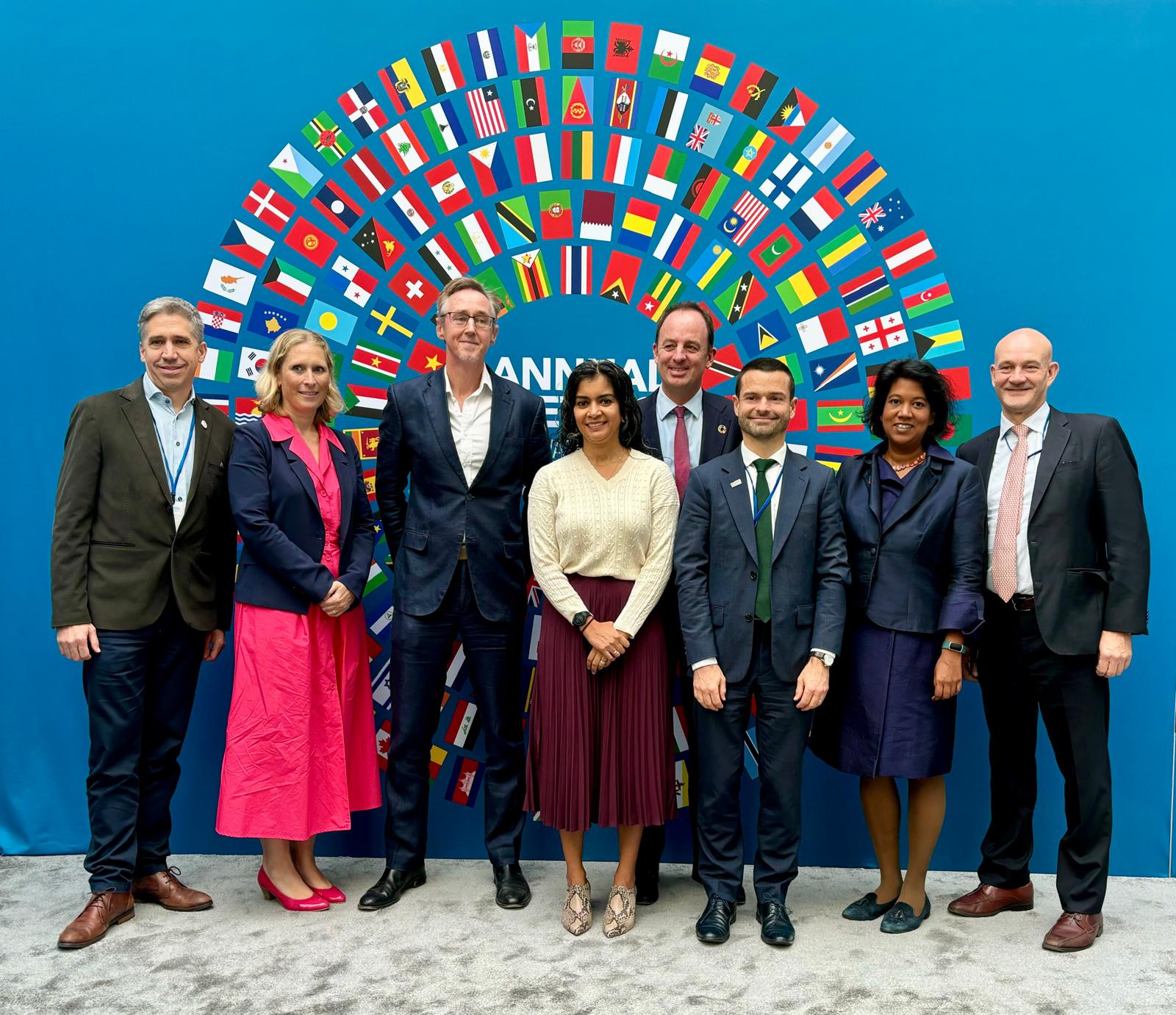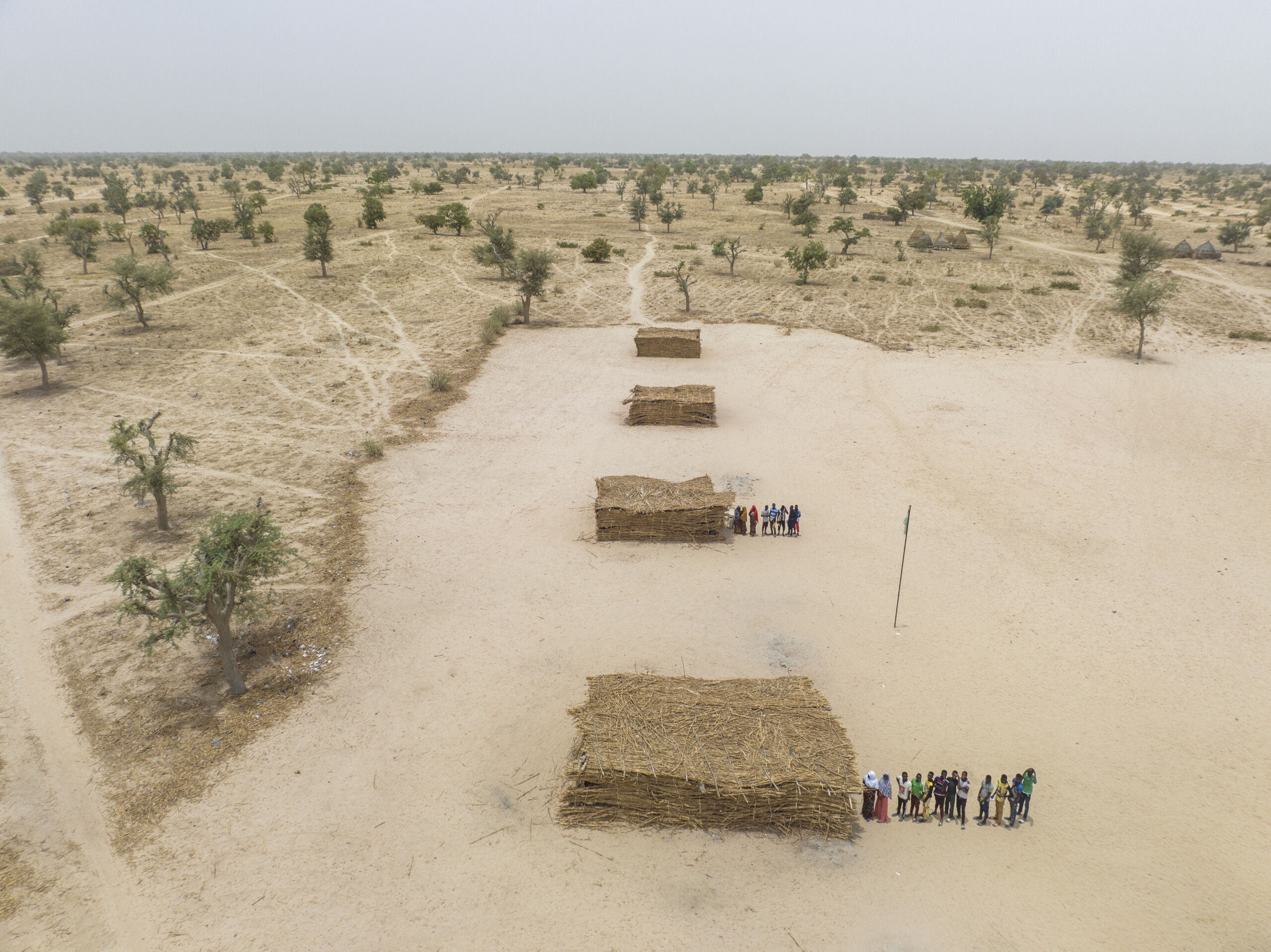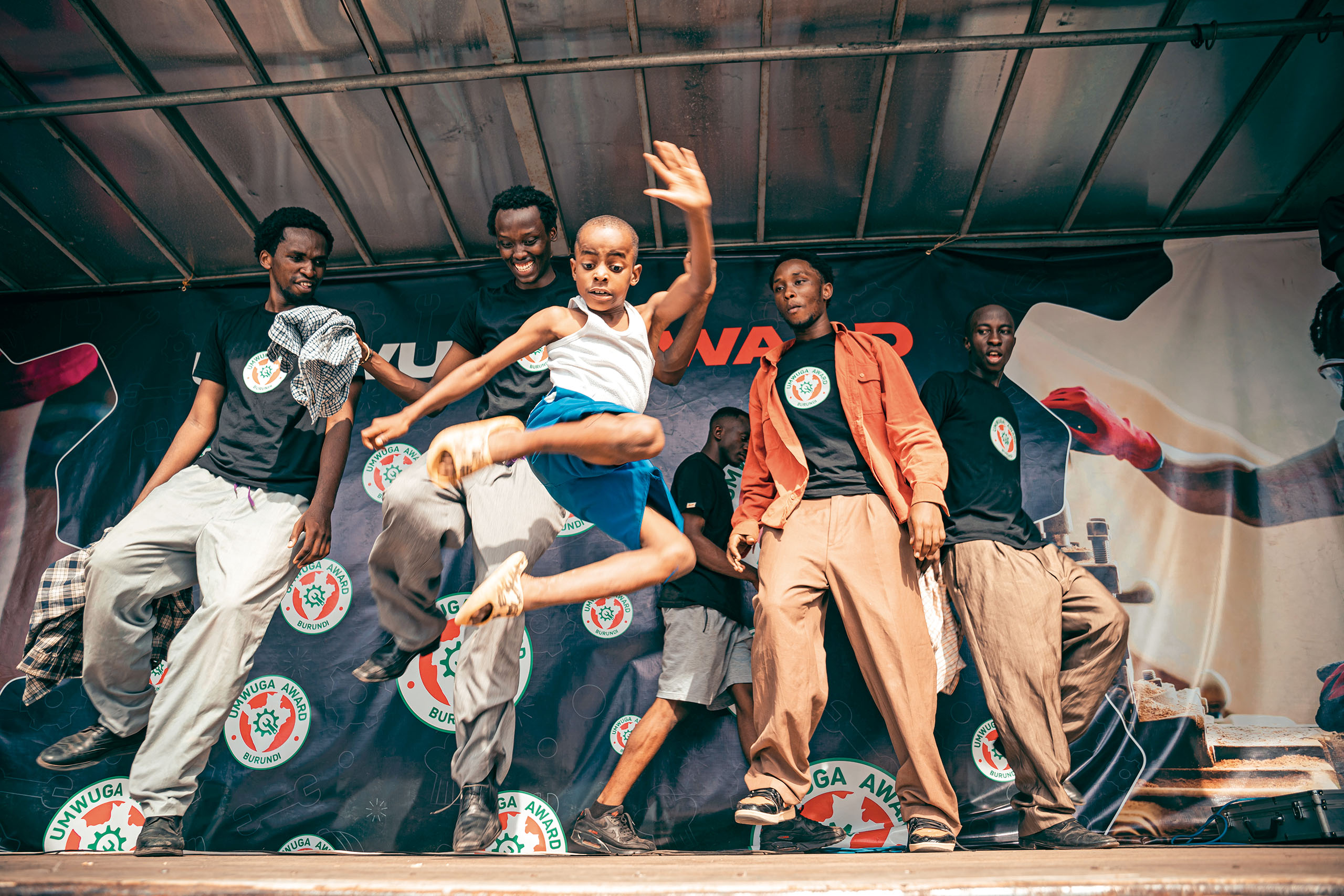Moving from a logic of problems to one of opportunities
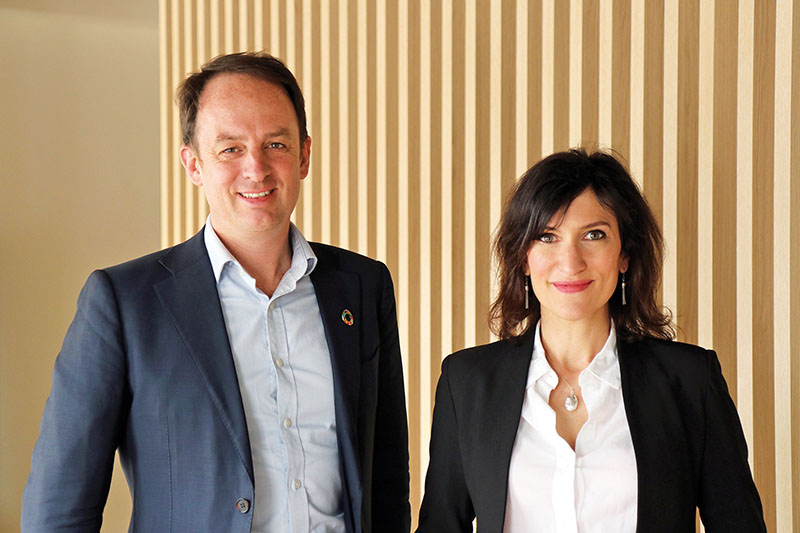
How do you look back at the past year?
Jean Van Wetter – Before I go into the details of our various achievements, I would like to thank the staff of Enabel around the world. Thanks to their work, we have not only continued ongoing programmes and started new ones, but we have also contributed to developing responses to the COVID crisis with our partner countries. At the same time, we were able to carry out change projects, such as setting up collaborative governance and implementing our WiTiP – Working independently of Time and Place – model, which reorganises work at Enabel’s around the empowerment of each individual on the basis of objectives.
Delphine Moralis – Crises and transformation projects are major sources of stress. That our teams were able to carry out their work successfully in such a context speaks volumes about their motivation. They are passionate people who do their utmost for their projects, which is a great source of pride for us. We want to continue to work with people at the heart of our work. This concerns Enabel as well as our partners in Belgium, in Africa and in the Middle East. These are times that require dialogue, listening and collaboration to build bridges between organisations and institutions and to ensure the success of our projects.
What guidelines underlie Enabel’s work?
Jean Van Wetter – For me, there are three of them: solving common challenges together, moving from a logic of problems to one of opportunities, and knowing how to listen to our partners.
Delphine Moralis – Today, it is important to develop a global, holistic approach to problems. Thinking about tackling the effects of climate change means thinking about agriculture, reforestation and water management. But if you think about it further, you realise that it also affects the fight against inequalities, the support of migratory flows and health policy. Hence, the need to place each action in a global context.
Of the approximately 2,000 people who work for Enabel, only 230 work in Brussels. The others are in the partner countries. In this way we can feed back challenges and ideas and help create solutions that are relevant to local realities.
Jean Van Wetter, managing director of Enabel
Moving from a logic of problems to one of opportunities. What does it mean?
Jean Van Wetter – Take the COVID crisis. Like many other countries, Belgium joined the COVAX programme, which aims to provide vaccines to countries with fewer resources. But we very quickly felt that we needed to think in the longer term and had to work on structural solutions. We therefore initiated two projects. On the one hand, in Senegal, we support the establishment of a ‘lab’ bringing together the entire pharmaceutical industry: authorities, public players, local and international private companies, in short, all the players who were involved in some way in the country’s pharmaceutical production. With this ‘lab’ we can build an action plan for the local production of vaccines against COVID-19, with specific roles and responsibilities for the various local and international actors. It allowed Enabel to identify a project to support the establishment of a Medicines Agency.
On the other hand, in Rwanda, we supported the Food & Drug Administration (FDA) in obtaining the necessary WHO approvals to certify the local production of vaccines and allow their distribution throughout the region. Rather than simply solving the problem of vaccine availability, we have helped to improve the response capacity on the African continent.
In these examples, collaboration plays a major role. Is this the way Enabel evolves?
Delphine Moralis – I would rather talk about co-creation. Involving our partners from the very beginning of the project is the best way to achieve sustainable results. We want to get out of the silo logic and create real partnerships, where everyone wins. The important thing is to develop real listening capacity.
Jean Van Wetter – This requires permanent presence in the partner countries and being in contact with the local reality. Of the approximately 2,000 people who work for Enabel, only 230 work in Brussels. The others are in the partner countries. In this way we can feed back challenges and ideas and help create solutions that are relevant to local realities.
Delphine Moralis – This is in line with our dynamic of opportunities. Finding opportunities means listening to people in partner countries. If we think in the long term, our world is changing, Europe is ageing, and soon the majority of the African population will be under 18 years old. Dialogue and co-creation become essential; otherwise our action will become completely obsolete.
Developing a holistic approach to problems is important. Thinking about tackling the effects of climate change means thinking about agriculture, reforestation and water management. But if you think about it further, you realise that it also affects the fight against inequalities, the support of migratory flows and health policy
Delphine Moralis – Chairperson of the board of directors at Enabel
You insist on the notion of Team Belgium. What does it mean?
Delphine Moralis – Team Belgium stands for the idea that Enabel’s role today is not only to provide its own expertise, but also to go and find cutting-edge expertise where it can be found. For example, in 2021, at the instigation of Minister Kitir and in close cooperation with the Ministry of Foreign Affairs, Enabel organised a round table that brought together all the players in the pharmaceutical sector in Belgium: Sciensano, universities, the federal agency for medicines, the Federal Public Service Health, Pfizer, Johnson&Johnson, Univercells, etc. We reflected together on what Belgium could mean for our African partners, with the expertise of the various participants. That is the Team Belgium spirit.
And what about Team Europe?
Delphine Moralis – It is the same idea: It is about pooling the expertise at European level to respond together to problems for which partner countries ask our support. Enabel plays an important role here. In 2021, thanks to our involvement in Team Europe, we obtained a total of more than 90 million euros of funds to participate in European Union programmes or even in programmes of other European countries that wanted our expertise.
How was the collaboration with Enabel’s supervising minister, Meryame Kitir?
Jean Van Wetter – We are fully in line with the Minister of Development Cooperation’s vision. Under her leadership, Enabel set up a large number of new programmes in 2021. For example, we have launched a regional climate change programme involving several Sahel countries as well as Senegal. We also launched a social protection programme with Rwanda, Uganda and DRCongo. And we launched new five-year programmes in Palestine and Niger. So, collaboration is excellent, and we hope that this will continue in 2022.
